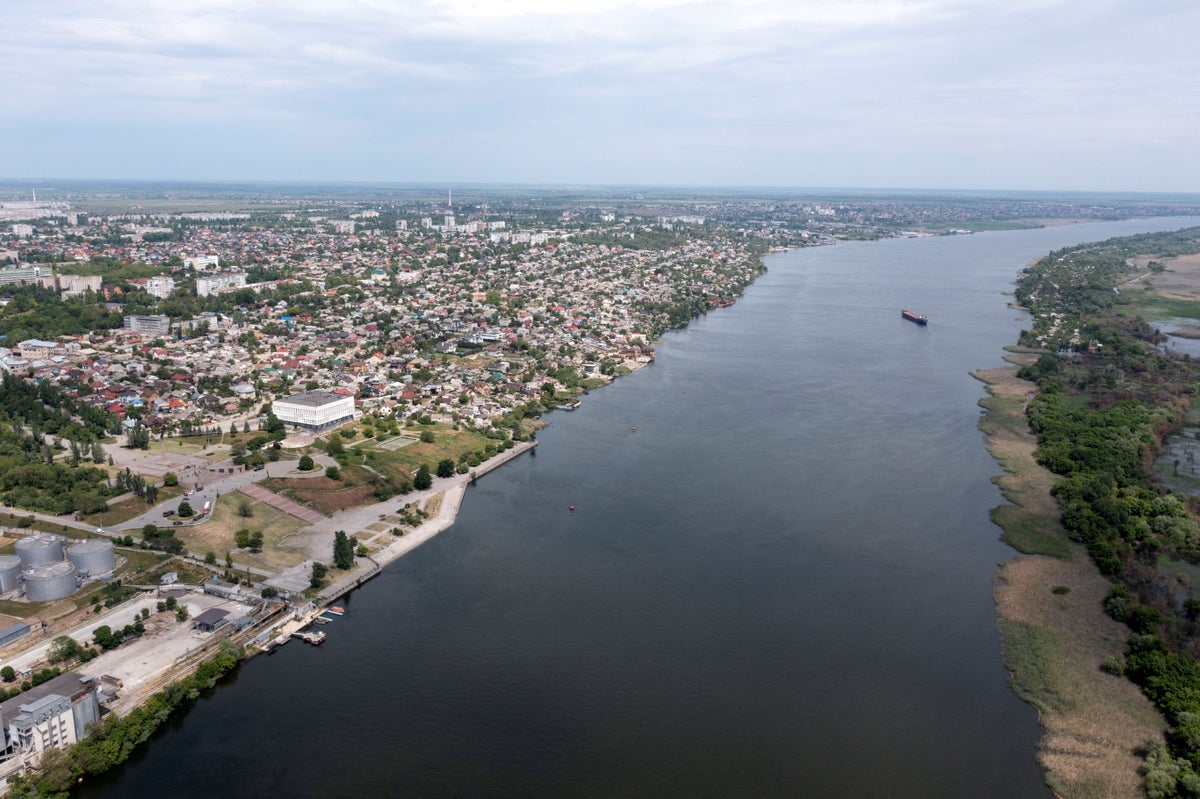
Russian commanders in Kherson are likely fleeing and leaving ill-equipped and “demoralised” troops to face Ukrainian assaults, Western officials have said.
Officials said that while more of Vladimir Putin’s troops were arriving in an apparent attempt to shore up their defensive positions in the key city, many were recently mobilised reservists who were often “woefully equipped and prepared”.
“In Kherson, it is likely that most echelons of command have now withdrawn across the river leaving demoralised and leaderless men to face Ukrainian assaults. At least some reservists are arriving in theatre without weapons,” one official said.
They added that the Russians were also running “critically short” of munitions – including artillery shells with additional supplies even being sought from North Korea.
“Without the guns and rocket launchers being fired everything else is grinding to a halt,” one official said.
The officials suggested Mr Putin is likely to come under increasing pressure from nationalist hardliners as he prepares to withdraw Russian forces from Kherson.
Officials said planning to pull forces out of Kherson on the Dnipro River appeared to be well-advanced with a large proportion of the civilian population having already been moved out to the city.
But while officials expect it to be presented by the Kremlin as a humanitarian evacuation rather than a military retreat, they believe it will not prevent further criticism of the conduct of the war.
“When it does go ahead we can expect another uptick in pointed criticism of Russian national leadership,” one Western official said.
“A key task for us will be to continue to track how this impacts on Putin’s credibility. For now, he appears to continue to successfully deflect with his pointed barbed at his lieutenants.”
The assessment comes as one former Putin ally – the head of the notorious mercenaries the Wagner group, Yevgeny Prigozhin – stepped up his criticism of the Russian leader.
In a statement earlier this week he pointedly praised Ukrainian President Volodymyr Zelensky – who is routinely denounced by Moscow as a neo-Nazi drug addict – as a “strong and confident leader”.
One official said that such criticisms had in the past led Mr Putin to take decisions he would have preferred to avoid – such as the partial mobilisation of military reservists – although it did not appear his position was under immediate threat.
“There has been pressure from Putin’s right directed largely at the (Russian) MoD (Ministry of Defence) who have been perceived as mismanaging the conduct of the war,” the official said.
“Our assessment is that one of the factors that led him to take that step (mobilisation) was the need to pacify those who are criticising the conduct of the war as insufficiently determined.”







